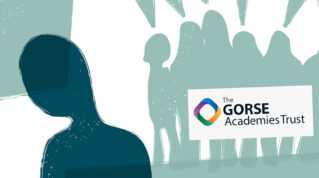An experienced teacher recently joined our staff from another East London school, just three miles away. At the end of week one, I asked her how it had gone. She said she couldn’t believe how respectful the children’s behaviour was towards each other and adults.
It’s not the first time I’ve heard this, though of course it never ceases to make me proud. We’ve had similar feedback from school advisers who unanimously praise the quality of our students’ behaviour. One remarked that it was exemplary in every classroom. Another extended this to note their positive and respectful attitudes in corridors, the lunch hall and the playground. Without fail, visitors observe our students’ genuine respect for each other and for our two schools.
They seem almost surprised when they say it, and that’s probably because Uphall primary is in the most disadvantaged ward in the local authority. We serve an incredibly diverse community, and we experience high mobility. Students leave each week and new students join us. So perhaps our visitors come with low expectations, or perhaps they think a ‘no-excuses’, ‘zero-tolerance’ style is the only way to achieve this outcome.
But to me and to anyone who knows our schools, there’s nothing surprising about it at all. The basis of our success is that our values and practices are founded on UNICEF UK’s Rights Respecting Schools Award. I’ve led three schools, and the first thing I’ve done at all of them was to begin the journey of becoming rights-respecting.
The UN convention on the rights of the child (UNCRC) becomes the glue that binds the school community, and the first step on the journey is to enable everyone – students, staff and parents – to develop an understanding of it.
Rights is what binds this diverse community together
It’s about so much more than a kitemark and some nice displays. It’s not a bolt-on that one member of staff takes ownership of. Instead, being rights-respecting quickly becomes a fundamental part of who we are, and embedding children’s rights into our schools’ ethos has helped us meet all the huge challenges of the past few years with confidence.
One of the biggest of these challenges – other than the pandemic itself – has been managing children’s return to school and supporting and developing positive behaviour. I’ve heard of many colleagues who have struggled and continue to struggle.
For us, part of being rights-respecting adults is that we are duty-bound to respect, protect and fulfil children and young people’s rights. So, we take leading by example as our first step, whatever the challenge. The way in which we talk to and treat each other – adult-to-adult and adult-to-child – models to our students how we expect them to behave.
We have seen pupils not only mirroring our behaviours but calling out any non-respectful behaviour themselves. Whenever a challenging behaviour does occur, we have a shared language to frame, understand and manage it, rather than imposing sanctions and punishments.
In addition to being respectful, we want to develop our children to be independent critical thinkers and understanding their rights supports them in this. It’s not just about learning information; it’s about empowering them to question the world around them, to know they have a voice and to believe they can make a positive difference. It’s about setting them up to thrive.
We’re in no doubt. The ethos and values of the rights-respecting schools programme enables our students – old and new – to integrate quickly in a community where they feel safe and happy. The language and values of rights is what binds this diverse community together and enables all of us, adults and children, to learn and develop in a harmonious rights-respecting family.
That’s what one of our students referred to us as in assembly on Monday. A family. And when you think about it, it’s not so surprising that they behave accordingly.
To hear more from Kulvarn as well as other speakers join the UNICEF UK Rights Respecting Schools Award virtual conference on 5 October. For more info visit unicef.org.uk/rights-respecting-schools/.
















Your thoughts